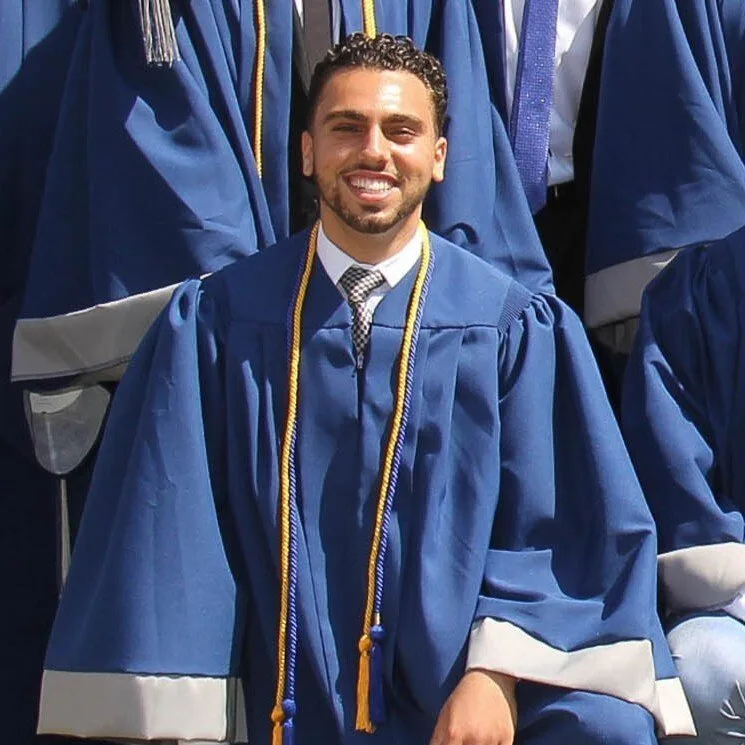Students Lead on Israel

My parents were not yet my age when they were forced to leave their homes in Iran and start a new life in Los Angeles. Like so many other courageous Jewish refugees, they did not hide their identities and love for Israel in the United States. Instead, they engaged in an act of cultural resistance: they invested tenfold in strengthening their own children’s Jewish and Zionist identities, and instilled in me pride in who I am.
Headlines indicate that this pride in the Jewish state among our youth is waning in the United States. And it’s time that Jewish Americans look in the mirror and consider how we are failing to empower our young people. The organized Jewish community is missing an opportunity to meaningfully empower college students to express their support for Israel at the very moment when we are needed most.
As a student at the University of Southern California (USC), I attend weekly meetings of the student advocacy group Trojans for Israel. I listen to foreign policy experts who visit my campus. I post my support for Israel on social media whenever a rocket is launched toward Tel Aviv. It is a distanced experience that many pro-Israel students can relate to. An experience without room for creativity. Students engaged in Israel education and advocacy are told again and again that we are “the next generation of leaders”, but it seems that the national conversation about Israel—the actual leading—is limited to experts, activists, and organizers in Washington. Students have therefore been expected to follow, not lead. That is, until my mentors at USC Hillel gave me the opportunity to be an actual initiator, a real builder, and a true generator in the pro-Israel movement.
Earlier this year, I had a front row seat in creating Hillel International’s Israel Summits in Los Angeles and Boston with fellow student leaders. The Summits are student-led conferences that connect nearly 500 students nationwide with real changemakers. Above all else, these summits democratize the conversation about support for Israel as a nation, as a people, and as the spiritual center of Judaism to students. Together with other students, we selected and invited the speakers. We programmed the sessions. We coordinated the run-of-show. And most notably, at each session, we led and guided conversations, instead of merely sitting in the audience. For the first time, I felt like I was shaping the conversation about Israel and the trajectory of the U.S.-Israel relationship
Before the summit, Hillel International convened eight student organizers to discuss an invite list, breakout sessions, and plenary topics. The Hillel professional mentoring us opened this conversation by exclaiming “Folks, the sky’s the limit.” I remember thinking, “You’re kidding, right?” I suggested a speaker with some hesitation, “Congressman Ritchie Torres,” and then with growing confidence, “Senator Jacky Rosen, Dr. Sheila Nazarian, Ambassador Linda Thomas-Greenfield, author Seth Siegel, activist Noa Tishby, and Congresswoman Sydney Kamlager-Dove.” A few weeks later, there I was, taking a selfie with Congresswoman Kamlager-Dove following her inspiring remarks about historic Black and Jewish partnerships. People often refer to us college students as “the next generation of leaders.” But, this was the first time I truly felt that I was leading in the present. I finally had a seat at the national table.
Jewish students are at the epicenter of challenging conversations about Israel on campus everyday. We are fatigued by in-your-face anti-Zionism, and worn down by silent apathy in the face of incidents and rhetoric that cross the line into antisemitism. Much more, we are saddened that conversations about Israel on campus focus again and again on “the conflict,” leaving little room for celebrating everything I grew up learning to love about Israel. And we are tired of the expectation to be Israel advocates when we are not able to own or direct the conversation.
The model of the Israel Summit uniquely positioned us at the center of reimagining what Israel advocacy can look like from the real grassroots level. We were having conversations with subject matter experts like Ambassador Dennis Ross, decisionmakers like Congresswoman Young Kim and Consul General Hillel Newman, and activists like Amanda Berman and Kiyomi Kowalski. From these engagements, veteran student leaders returned to their campuses refreshed and invigorated, and new student leaders were inspired and equipped with the tools to find their places as effective allies on campus.
Positive social change needs students. Today’s students are engaged, informed, and passionate. We grew up immersed in countering anti-Israel sentiment on campus and online, and we bring a fresh perspective to the table, new approaches to engaging allies beyond the Jewish community, and new skills to enrich grassroots Israel advocacy. And we have the biggest stake in the Israel-Diaspora relationship. We are the ones who will live with the impact of the changes taking place in Israeli society today, particularly potential actions by the current government that could alter the course of Israeli democracy. And nevertheless, we have just as much insight, perspective, and maturity to grapple with the big and challenging questions of crafting our generation’s commitment to Israel and the Jewish homeland. As the world’s largest and most inclusive Jewish student organization, Hillel International fosters an enduring, grassroots commitment to Jewish life, learning, and Israel. Students have the power to shape the trajectory of the movement to celebrate our identities, pride, and passion for our community. It’s time to give us the chance, just as my parents did 18 years ago when they had me.